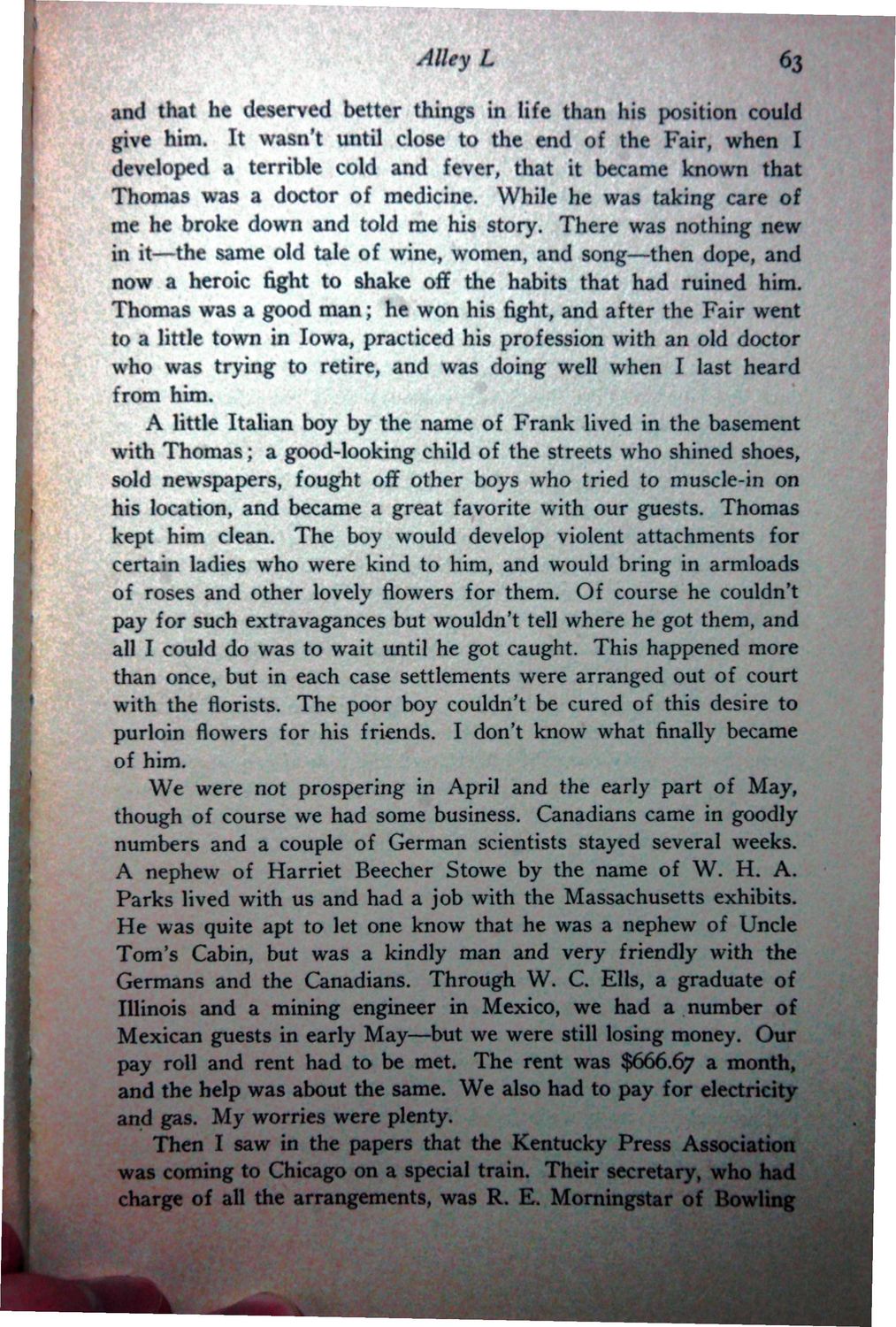| |
| |
Caption: Book - Banks of the Boneyard (Charles Kiler)
This is a reduced-resolution page image for fast online browsing.

EXTRACTED TEXT FROM PAGE:
Alley L 63 and that he deserved better things in life than his position could give him. It wasn't until close to the end of the Fair, when I developed a terrible cold and fever, that it became known that Thomas was a doctor of medicine. While he was taking care of me he broke down and told me his story. There was nothing new in it—the same old tale of wine, women, and song—then dope, and now a heroic fight to shake off the habits that had ruined him. Thomas was a good man; he won his fight, and after the Fair went to a little town in Iowa, practiced his profession with an old doctor who was trying to retire, and was doing well when I last heard from him. A little Italian boy by the name of Frank lived in the basement with Thomas; a good-looking child of the streets who shined shoes, sold newspapers, fought off other boys who tried to muscle-in on his location, and became a great favorite with our guests. Thomas kept him clean. The boy would develop violent attachments for certain ladies who were kind to him, and would bring in armloads of roses and other lovely flowers for them. Of course he couldn't pay for such extravagances but wouldn't tell where he got them, and all I could do was to wait until he got caught. This happened more than once, but in each case settlements were arranged out of court with the florists. The poor boy couldn't be cured of this desire to purloin flowers for his friends. I don't know what finally became of him. We were not prospering in April and the early part of May, though of course we had some business. Canadians came in goodly numbers and a couple of German scientists stayed several weeks. A nephew of Harriet Beecher Stowe by the name of W. H. A. Parks lived with us and had a job with the Massachusetts exhibits. He was quite apt to let one know that he was a nephew of Uncle Tom's Cabin, but was a kindly man and very friendly with the Germans and the Canadians. Through W. C. Ells, a graduate of Illinois and a mining engineer in Mexico, we had a number of Mexican guests in early May—but we were still losing money. Our pay roll and rent had to be met. The rent was $666.67 a month, and the help was about the same. We also had to pay for electricity and gas. My worries were plenty. Then I saw in the papers that the Kentucky Press Association was coming to Chicago on a special train. Their secretary, who had charge of all the arrangements, was R. E. Morningstar of Bowling
| |